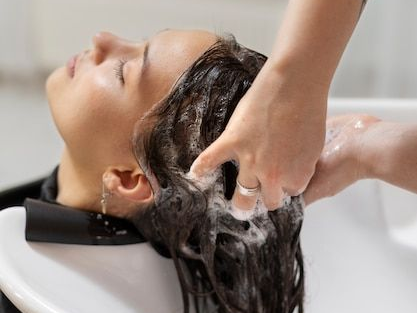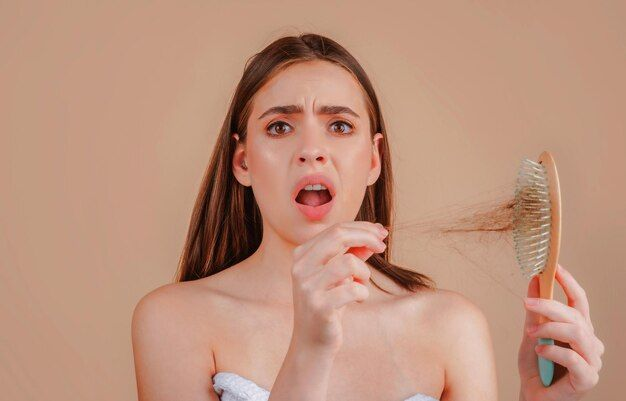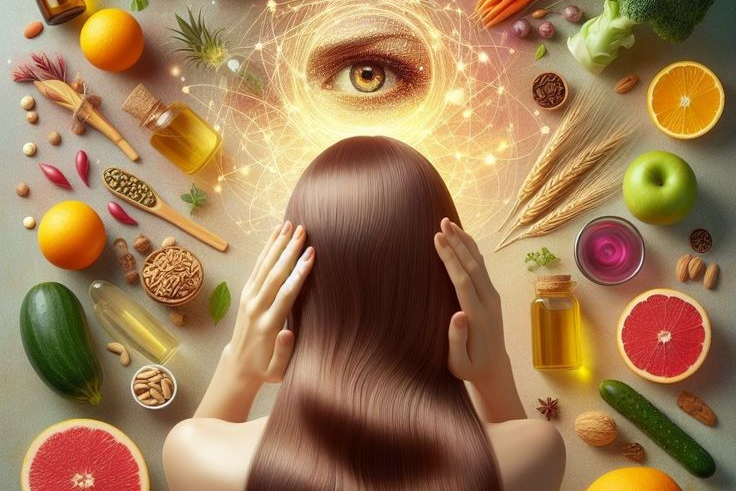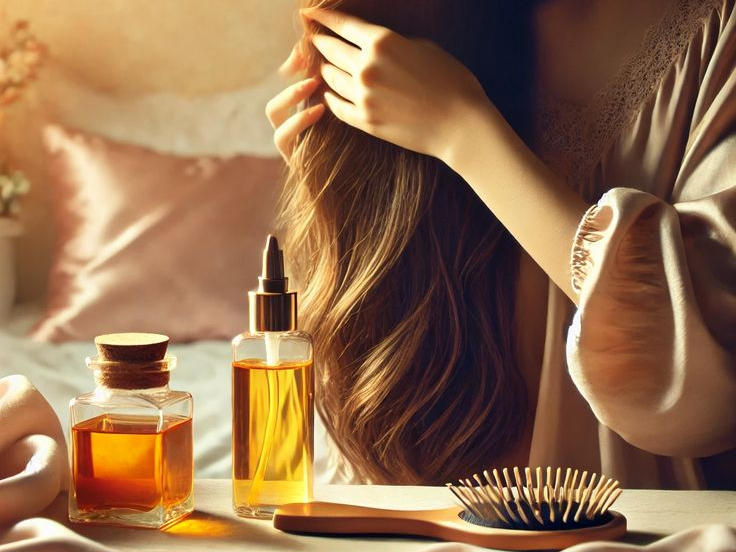Experts Decode : Mind, Diet and Hair Health Connection
Introduction: Why Hair Health Goes Beyond Shampoo

mind, Diet and Hair Health Connection. : Most of us image shampoos, conditioners, or oils when we think about hair care. Experts concur, however, that hair wellbeing is more than just an exterior phenomenon. It reflects your lifestyle and inner well-being.
Your hair reacts to internal bodily events, much like your skin does. Your strands’ strength, luster, and growth are influenced by a variety of factors, including stress levels, food choices, sleep patterns, and self-care routines. Long-term hair health depends on how you take care of your body and mind, even though a high-end hair serum can momentarily improve the appearance of your hair.
Globally, health coaches, dietitians, and dermatologists stress this “inside-out” strategy. Numerous studies actually demonstrate that hair loss, early graying, or a lifeless texture can indicate imbalances in lifestyle, diet, or mental health.
With professional insights, all-encompassing answers, and easy, doable actions you can do right now, this blog unravels the secret mind, Diet and Hair Health Connection.
The Stress-Hair Connection: What Experts Say

Stress now manifests physically as well, affecting your skin, nails, and most importantly, your hair. Dermatologists claim that elevated stress levels cause the body’s main stress hormone, cortisol, to rise.
By forcing follicles into the “resting” phase, cortisol interferes with the natural cycle of hair development. Telogen effluvium is a disorder that can cause abrupt and dramatic hair loss. Alopecia areata, in which the immune system unintentionally targets hair follicles, can also be brought on by stress in extreme situations.
📌 Common Signs of Stress-Related Hair Problems
- Early greying brought on by oxidative stress;
- Sudden increase in hair loss after tests, deadlines, or personal struggles;
- Thinning hair around the crown or temples
- A lifeless, dull texture
Expert Advice: Stress Management for Hair Health
- Yoga and meditation: Enhances blood flow to the scalp and lowers cortisol.
- Deep breathing: 5–10 minutes a day instantly reduces stress.
- Journaling or conversing: Facilitates the release of suppressed feelings.
- Sleep hygiene: For hair repair, get at least 7 to 8 hours of good sleep.
In a nutshell: A relaxed mind fosters the ideal conditions for hair development.
Diet and Hair Health: Why Nutrition Matters

“What you eat is what your hair is.” According to experts, this is science, not simply a catchphrase. Keratin, the protein that makes your hair, requires a constant flow of nutrients. Your hair is frequently the first to suffer if your diet is deficient in important vitamins and minerals.
Key Nutrients Experts Recommend for Strong Hair
- Protein: For thick, robust hair, eat eggs, lentils, seafood, and soy.
- Iron: pomegranate, beets, and spinach—avoid excessive shedding.
- Zinc: Whole grains, nuts, and seeds—for scalp healing.
- Vitamin D: Prevents brittle strands by combining sunlight and fortified foods.
- Biotin (B7): Sweet potatoes and almonds—improves development and adds luster.
- Omega-3 Fatty Acids: salmon, flaxseeds, and walnuts—for hydrating the scalp.
Expert Tip: Holistic Eating for Hair Wellness
Instead than chasing “superfoods,” concentrate on eating a seasonal, well-balanced diet. The combination of protein, vitamins, and minerals your hair need is naturally found in Indian traditional foods like dal, roti, sabzi, rice, buttermilk, or millet-based recipes.
Consistent, wholesome meals are the key to healthy hair, not just pills.
Beyond Products: Holistic Hair Care Practices

Although external care is important, experts emphasize that it should be constant and gentle. Excessive heat style, harsh chemicals, or excessive washing weaken follicles and harm the scalp.
Professionally Suggested Hair Care Methods
- Massages of the scalp: Increase blood flow and promote mental relaxation.
- Oil Therapy: Roots are nourished with coconut, rosemary, or argan oil.
- Gentle Shampooing: Steer clear of parabens and sulfates.
- Hydration: Consuming water has a direct impact on dry scalp.
- Get Enough Sleep: Hair cells heal at night.
Holistic Ritual Example
- Midday: A well-balanced breakfast consisting of grains, pulses, and greens;
- Morning: Warm water with lemon and ten minutes of yoga
- Evening: massage your scalp gently;
- Evening: herbal tea plus 7–8 hours of sound sleep
Hair wellness is the result of regular, minor lifestyle practices.
The Mind-Food-Hair Triangle
Experts frequently compare the three corners of hair health—mind, nourishment, and care—to a triangle. The entire construction falls apart if one side is weak.
• Mental stress: Causes hormonal imbalance, which results in hair loss
• A poor diet causes a nutrient shortage, which results in weak strands.
• Neglect (Care): Causes follicle damage, leading to dullness and breakage
Your hair not only looks better when all three are working together, but it also gets stronger from the ground up.
What Research and Experts Reveal

- According to a 2020 study published in the Journal of Clinical and Diagnostic Research, one of the main reasons why women experience hair loss is iron insufficiency.
- According to dermatologists at the American Academy of Dermatology, telogen effluvium brought on by stress can be reversed with early treatment.
- Protein-energy deficiency frequently results in sparse, brittle hair, according to nutritionists.
Translation: Experts and science alike concur that there is a strong and genuine underlying connection between diet, hair health, and the mind.
Action Plan: Building Your Holistic Hair Wellness Routine
Experts advise developing a customized, comprehensive routine as an alternative to haphazard attempts.
- Morning: Eat a breakfast high in protein, stay hydrated, and engage in mindfulness exercises.
- Afternoon: A well-balanced lunch that includes grains, greens, and good fats.
- Evening: Massage your scalp or lightly oil it; don’t style too much.
- Evening: 7–8 hours of sleep, herbal tea, and gratitude journaling.
Bonus Tips from Experts
- Don’t skip meals — hair is sensitive to energy dips.
- Protect hair from sun & pollution with a scarf/hat.
- Limit chemical treatments and heat styling.
Conclusion: Healthy Hair = Healthy Lifestyle
Your hair is more than a beauty statement — it’s an extension of your health. Stress, diet, and care are deeply connected. Experts confirm that a calm mind, a balanced diet, and gentle self-care are the real secret to strong, shiny, and youthful hair.
Remember: products may add a temporary glow, but long-lasting hair wellness comes from the way you live, eat, and think.
So, start small. Breathe deeper. Eat smarter. Care gently. Your hair will thank you for it.
